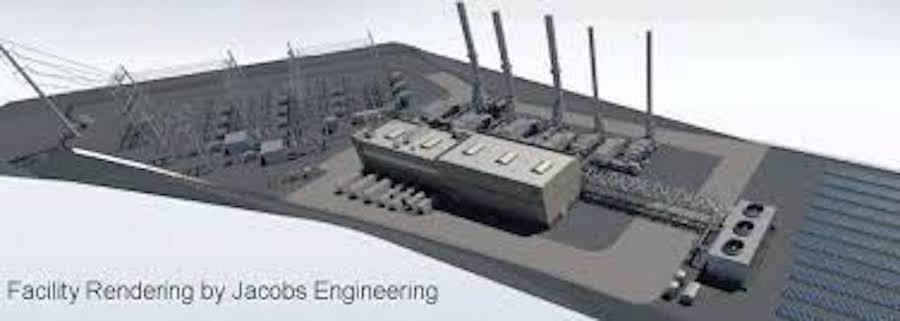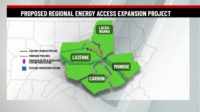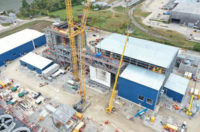NJ Transit has cancelled a long-running plan to build a 140-MW, estimated $546-million natural gas power plant in the New Jersey Meadowlands intended to provide power backup in a heavily traveled rail corridor near New York City, instead announcing it will build a microgrid using renewable energy and battery storage.
The agency said at an Oct. 21 board meeting it seeks to hire a renewable energy consultant to oversee new design-build options for its microgrid called NJTRANSITGRID, has set an Oct. 28 meeting to brief design and construction contenders and will issue a request for qualifications on Nov. 25 to assess eligible submitters.
The original fossil fuel-driven project, proposed during the administration of former Gov. Chris Christie (R), had been strongly opposed by environmental organizations and 13 communities closest to the intended 48-acre plant site in Kearny. The plant also did not align with new state clean energy mandates enacted by his sucesssor, Phil Murphy (D), who took office in 2018.
"We’re now in the process of reimagining this process to make it as environmentally friendly as possible,” NJ Transit CEO Kevin Corbett said at the agency board meeting, at which members voted unanimously for the revamped project. It is expected to use about $409 million in federal funds awarded to the original project to prevent a recurrence of system outages that hobbled rail travel after Superstorm Sandy in 2012.
A microgrid can operate autonomously when the commercial power grid is disrupted.
The agency said it will offer up to a $1-million stipend for each of four eligible proposals and has a total of about $3 million in compensation earmarked, with a proposal request to be issued in December 2021 and a contract set for award a year later.
NJ Transit said the new plan would incorporate wind, solar and hydrogen fuel cell technology and battery storage into the plant approach “to the greatest extent possible,” which could also include a 100% renewable option.
Environmental advocates cited multiple benefits from the new approach.
Jeff Tittel, director of the New Jersey Sierra Club, said the revamped plant is more cost efficient to build, will be more resilient and will allow NJ Transit to "make money by selling extra energy," terming the approach “one of the most important changes the agency has ever made."
He added “this is cutting edge technology that would make the state a leader in green transportation.”




